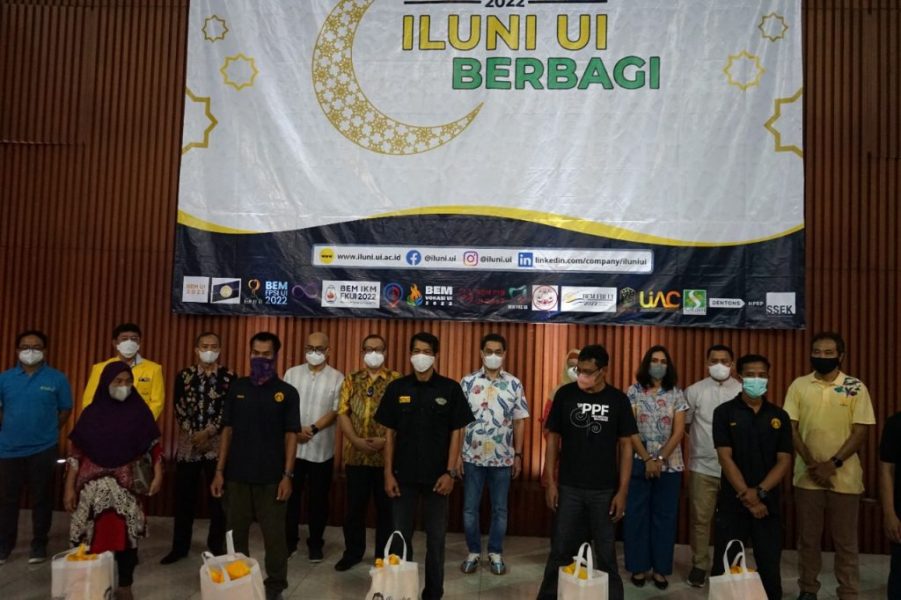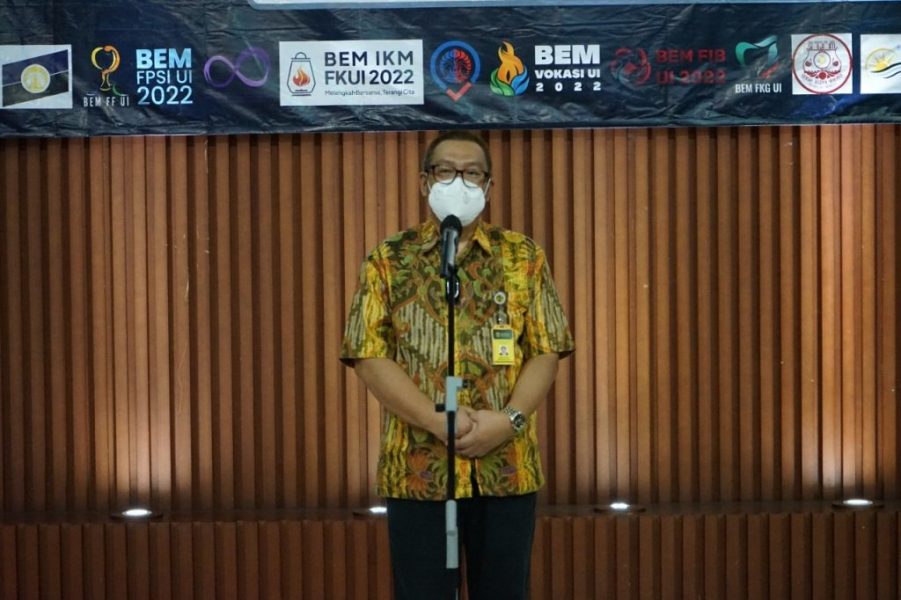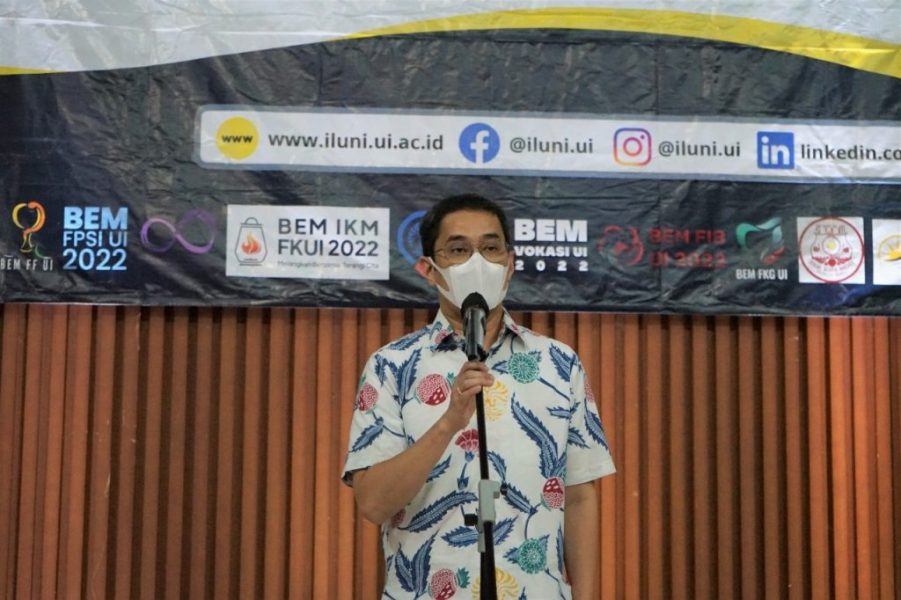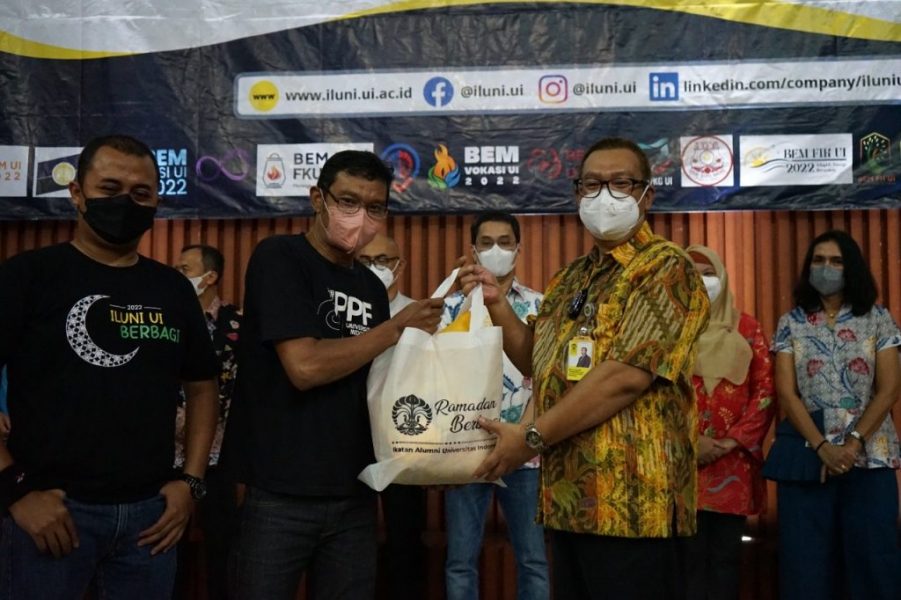Alumni collaboration with Student Organizations at UI (Universitas Indoensia)
Chairman of the Almamater Center ILUNI UI M. Try Sutrisno Gaus said, this activity could be carried out well with the support of various parties. The food donation program ran for two weeks and managed to collect donations for more than 2,700 packages from UI alumni and the general public. The donation packages contained rice, oil, flour, sugar, sardines, corned beef, egg noodles, soy sauce, bottled chili sauce, butter, tea, cooking spices, recyclable bags, and salt. Information dissemination was carried out through social media and UI alumni networks. In addition, ILUNI UI also received donations from ILUNI Faculties, namely ILUNI FHum, ILUNI FEB, and ILUNI Psychology, which will be distributed to employees of each faculty. ILUNI UI also received food donations from Universitas Indonesia Hospital, KitaBisa, Dentons HPRP, and SSEK.
“This program always gets support from UI alumni and the community who want to share, as evidenced by the number of food packages that always reach thousands of packages,” explained Gaus.
In addition, in running the program, Gaus also explained the involvement of various parties in the ILUNI UI Berbagi program. In addition to support from UI, ILUNI UI also collaborates with 15 student organizations from 15 faculties from UI, consisting BEM UI, BEM FMNS UI, BEM FPharm UI, BEM FPsi UI, BEM FM UI UI, BEM IKM FM UI , BEM Fasilkom UI, BEM Vocational UI, BEM FHum UI, BEM FD UI, BEM FIK UI, BEM FH UI, Salam UI, SWM UI, and UIAC.
“This program certainly runs well from year to year thanks to the support from the campus and students who have helped us to distribute donations to the beneficiaries,” he explained.
Adding Gaus, ILUNI UI Berbagi Chief Executive Astrini Pradyasti explained that the distribution of food packages will be done gradually and separately. “For UI employees, the distribution will be done at Balairung. For the community around UI, the distribution will be carried out to several predetermined gathering points,” said Astrini.
Astrini emphasized that contributions can run smoothly through good coordination between various parties. Technology also helped her, who is currently in South Korea, to get involved in this activity.
“Contributions can always be made even in the midst of a pandemic and even remotely. We hope that more parties will be involved in humanitarian activities to help others,” he concluded. (*)






